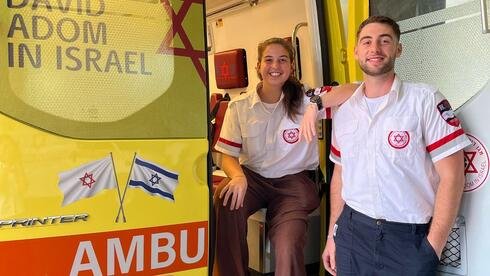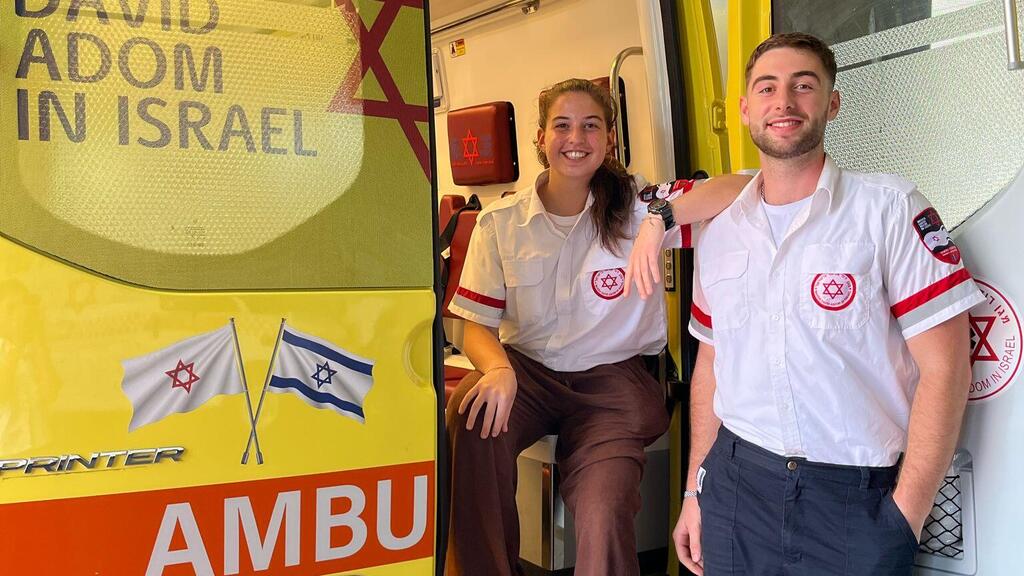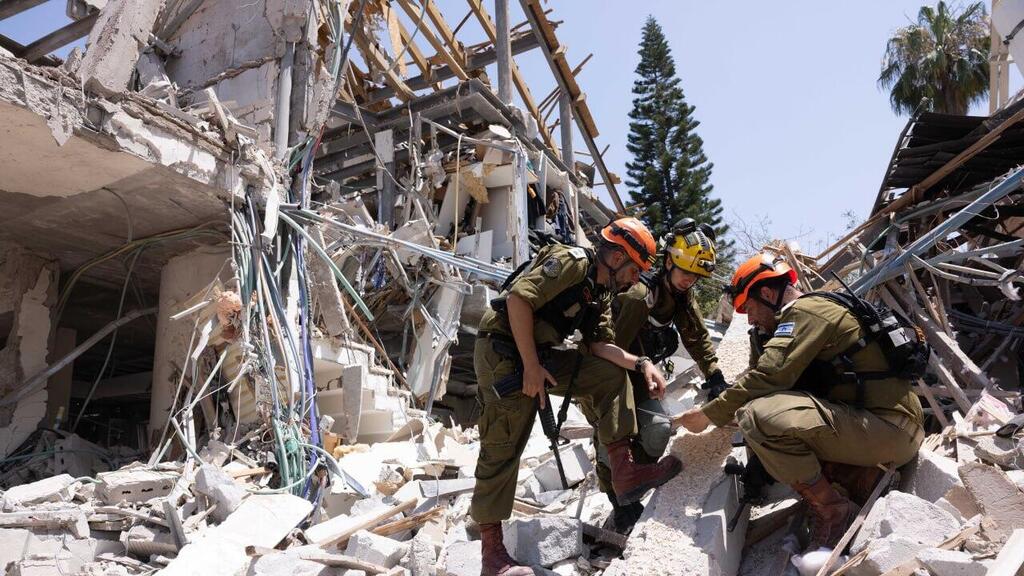“I used to think about making aliyah and joining the army, but it never happened,” says Shachar van Straten, 23, from Utrecht, the Netherlands. “After October 7, I realized you can’t take safety for granted. I felt a need to give back.”
“The feeling on October 7 was that I desperately wanted to help, but there wasn’t much I could do from abroad,” she says. “In the Netherlands, with all the antisemitism, it’s hard to talk to people who don’t understand how awful the attack was. I realized that if I want my family to live in Israel and thrive, I need to contribute something—if not through military service, then another way.”
Shachar’s cousin, a combat soldier in the Nahal Brigade, was seriously wounded in a battle on that day. “We were worried from the morning because we knew he was near Gaza,” she recalls. “He was unreachable until late afternoon. We waited hours to hear whether he was alive. Those are the moments when your whole world turns upside down.”
“He’s alive by a miracle,” she continues. “He lost sight in one eye and was shot several times—one bullet missed his spine by just three millimeters.” He has been in rehab for a year and a half and is now walking again, recently returning from a post-army trip to the Far East.
Shachar’s childhood friend, Ilan Horev, 20, also from the Netherlands, joined the same MDA course. “Even when the war started, I never once considered going home,” he says. “All I could think about was continuing the volunteer work. We feel a responsibility and a connection to Israel. You don’t run away when things get hard.”
The two had already visited Israel the previous year as part of the Birthright program, but returned home when tensions escalated. This time, they stayed.
“Last year, my dad told me to come back immediately,” Shachar says. “But this year I told him I’m staying—even if flights were available, I wouldn’t leave. I didn’t want to run again. I actually felt safer here in Israel than in the Netherlands. Instead of arguing with everyone there about what Israel is or isn’t doing, here there’s support.”
Ilan adds: “The security situation brought everyone in the course closer together. Running to the shelter at 3 a.m. and sitting there in a sealed room for 30 minutes—it’s bonding.”
Two weeks after the ceasefire with Iran took effect, and after completing the MDA first responder course, Shachar and Ilan began volunteer shifts at MDA’s Tel Aviv station. “I’ve responded to violent incidents, traffic accidents, and elderly people with high blood pressure,” Shachar says. “It’s incredibly rewarding—especially with the elderly, who are so grateful that we came from abroad to help despite the war.”
Ilan had a particularly intense experience during one shift, performing CPR on an 88-year-old man in cardiac arrest, who sadly did not survive. “In training, everything’s different. You practice on dummies. In real life, you have to be careful, quick, and focused. It felt strange at first, but the other team members were calm, and that helped me stay composed too.”
Sometimes, their help came in the form of emotional support. “Just holding the hand of an 80-year-old woman in the ambulance and distracting her from her panic made a huge difference,” says Shachar. “Her pained expression turned into a smile, and you could see her body relax.”
The two will return to the Netherlands in the coming days, but plan to come back to Israel and continue volunteering. “I want to take the medic course,” says Shachar, who’s preparing to start a master’s degree in psychology but hopes to do her internship in Israel. “Maybe we’ll even make aliyah,” she says.
They also have a message for other young Jews unsure about traveling to Israel in such times. “It was actually easier being in Israel than in the Netherlands,” Ilan says. “From far away, you don’t know what’s really happening, and the media doesn’t reflect reality.”
“Usually when I come to Israel, I feel like a tourist,” he adds. “This time, I lived daily life. It was a completely different, very positive experience. I’m really glad I came—and that I stayed even after the war with Iran started.”
“If you asked the other volunteers how they felt about being here, most would say what we’re saying,” Shachar adds. “It was a bit scary at times, but we felt safe and supported.”
The “MDA Overseas” program is a long-running Zionist initiative now in its 30th year. Around 500 Jewish young adults aged 18–28 come annually to Israel from across the globe to participate. After training as first responders, they volunteer for five weeks on MDA ambulances. Some return for the more advanced medic course—and some even make aliyah.
MDA Director-General Eli Bin notes that the program has trained over 17,000 participants since its founding. “This initiative strengthens the connection between young Jews in the Diaspora and the State of Israel, and contributes greatly to their values and worldview,” he says.
“In today’s reality, the fact that young people came to help during wartime—and didn’t leave even when the conflict with Iran escalated—has even greater significance,” Bin adds. “They stayed motivated, eager to help and save lives. We look forward to welcoming them back—to MDA and to Israel.”






